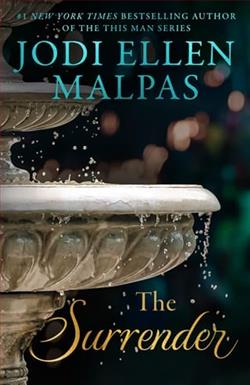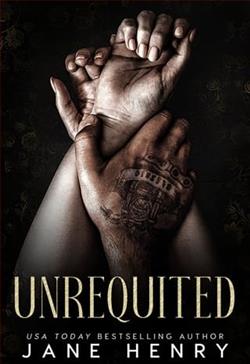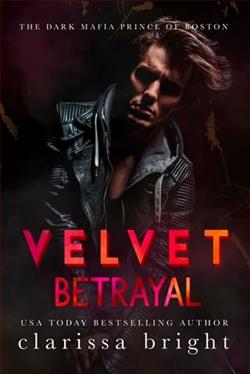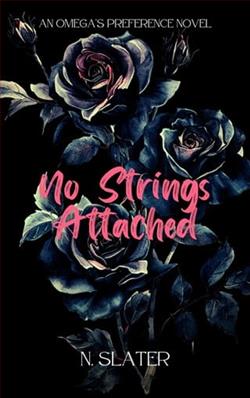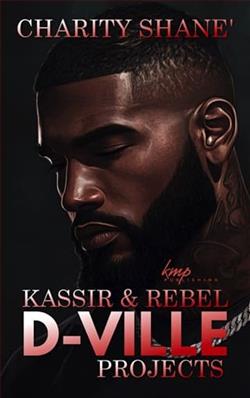Page 68 of Arise the Queen
Gwendolyn laughed then, understanding, wondering for a moment—privately—if this was the reason her mother had gone south so willingly, for the sake of her vanity.
They continued on throughout the various chambers until finally arriving at a large central hall similar to the room where Gwendolyn had first met with Baugh. Only this one was far more grand, with a large, raised dais at the back, upon which a stone-carved seat was held. “This is the Feast Hall—not so elegant as your father’s audience hall in Trevena, but it is the safest location in the village.”
“And the other one… whence we entered?”
“Purely an entrance hall… to greet guests. We’d not bring anyone so deep into our village unless we trusted them as friends.” Her mother drew up and patted her hand. “Now, please tell me of Trevena. How does our beautiful city fare?”
Gwendolyn told her mother as much as she could remember during the rest of their stroll—about how Loc’s brothers had left the city undefended, how she, with Caradoc’s help, broached the city again through the conduit to the bathhouse. How she’d discovered Talwyn in the King’s apartments, and how Bryn came to her defense, and then, only to save Bryn from having his father’s blood on his hands, how she slew Talwyn herself. “It was Yestin who provided the means,” Gwendolyn confessed. “Although I believe him rueful of his actions.”
Her mother sighed heavily. “Yes. No doubt. He was ripe for the plucking. He was ever so contentious with me, and I believe he longed for… something more.”
“He did it for a lover.”
Her mother nodded at that, considering, but her thoughts shifted abruptly from Yestin to the city itself. “You know… in retrospect, I believe our arrogance was our worst enemy. Remember that in future, Gwendolyn. We thought our wonderful Trevena impenetrable, but nothing is impenetrable. All it takes is a bit of ingenuity.” She smiled sadly. “Now tell me more… what of you and Málik?”
For a moment, Gwendolyn considered denying her feelings for him, but her mother knew her. She did not wish to lie anymore—not when she loathed it so much that others had lied to her. “What do you wish to know?”
“Firstly, do you love him?”
“I do,” Gwendolyn confessed, and she was well aware of how much her own features softened when she said, “Madly.”
“And does he love you?”
Gwendolyn sighed. “I am sure he does, but…”
Tears pricked at her eyes, and her mother patted her hand again. “There, there… Let us speak of it another day,” she said as she brought Gwendolyn to a large door. She paused for a moment to allow Gwendolyn to dry her eyes, splaying her hand over the door. “The women’s solar,” she said, as she pushed it open to reveal another large chamber in which the roof lay open to the afternoon sun. “It is the women of this village who truly make it thrive. This isourKonsel.”
Eager to see it, Gwendolyn stepped inside, but her mother tugged her back, and said softly, “It is well and good to cry…”
33
Gwendolyn took another step inside the chamber… and froze.
It wasn’t the beauty of the room that halted her step—nor the wooden rafters so ornately carved, nor the array of vibrant fabrics strewn about, nor the ethereal light filtering in through the ceiling… The faces peering up from various tasks were… heartrendingly familiar.
Demelza.
Lady Ruan.
Lady Ruan’s maid, along with her young boy, who used to run towels. His deep-brown eyes grew round at the sight of Gwendolyn.
All at once, everyone stopped what they were doing, bolting up from their seats, and rushing over to greet Gwendolyn, hurling themselves at her with squeals and sobs of unsuppressed delight. “Oh, Gwendolyn!” exclaimed Lady Ruan. “You’ve come!”
Wouldn’t Ely and Bryn be so pleased?Gwendolyn was suddenly so happy she had insisted upon Bryn’s accompaniment.
Demelza, too, came to embrace her, and Gwendolyn scarcely could release her thereafter. She hugged the maid tightly, weeping unabashedly, and wiping her damp eyes on Demelza’s bony shoulder as she used to do when she was a girl.
“There, there, Child,” said Demelza, patting Gwendolyn’s head—and forsooth! Her gentle tone of voice and her epithet never failed to make Gwendolyn feel like a child, in truth. But it also filled her with a sense of wellbeing that she was ashamed to confess did not at once materialize after her reunion with her mother, even as relieved and pleased as she was to discover Queen Eseld alive. All three women meant so much to Gwendolyn—each for different reasons.
At last, she would have a chance to repair her relationship with her mother. But Lady Ruan had so oft treated Gwendolyn as her own kin, and Demelza was the one who’d wiped away her tears. Now, as they stood together on the precipice of so much change, Gwendolyn realized how much they all meant to her—more than the sum of their parts. They were integral threads in the tapestry of her life. Every hug, every tear, every laugh filled her with a warmth that eased her months of agony and longing. Her mother cast her a glance, smiling—the look on her face every bit that of a young girl’s, though the years had etched soft lines into her face. She stood back, allowing Gwendolyn to bask in the love, and then, when all the halloos were said, and the hugs dispensed, Queen Eseld drew her away, pulling her over to yet another woman, who stood then, her face as weathered as Baugh’s, her eyes as fiery as her mother’s.
“Your grandmother,” she said, and Gwendolyn found herself tongue-tied, all her words caught by the brambles in her throat.
That evening,in the Feast Hall, the trestle tables were piled high with an abundance of victuals—roasted venison, freshly caught haddock and trout, bread still warm from the ovens. Horns of ale and mead were passed about freely, their contents sloshing as toasts were made and stories told. A few horns made it into the hands of grasping young lads, and they sat in one corner of the hall, clinking horns amongst themselves, pretending at being warriors, with their wooden swords at their feet. Not since her uncle’s home in Chysauster had Gwendolyn witnessed such a raucous celebration over dinner, only this was twenty times larger, with plenty enough bawdy jests to paint a permanent bloom in the cheeks, even despite the wee children darting betwixt tables.
“And then,” one warrior declared, his voice lifting above the din, “I swung my Long Plum to cleave his shield!”
“Your cock or your sword?” someone jested, and the hall erupted with laughter.








